Asst. Prof. Piper Bernbaum presents paper on architectural fieldwork ethics
February 24, 2022
Assistant Professor Piper Bernbaum presented a paper, Anatomy of the Field: Explorations into the Ethics in Architectural Field Work, at an international conference earlier this month.
She was one of 26 presenters at the two-day online workshop, titled (Re)Defining Fieldwork, that took place from February 3 to February 4.
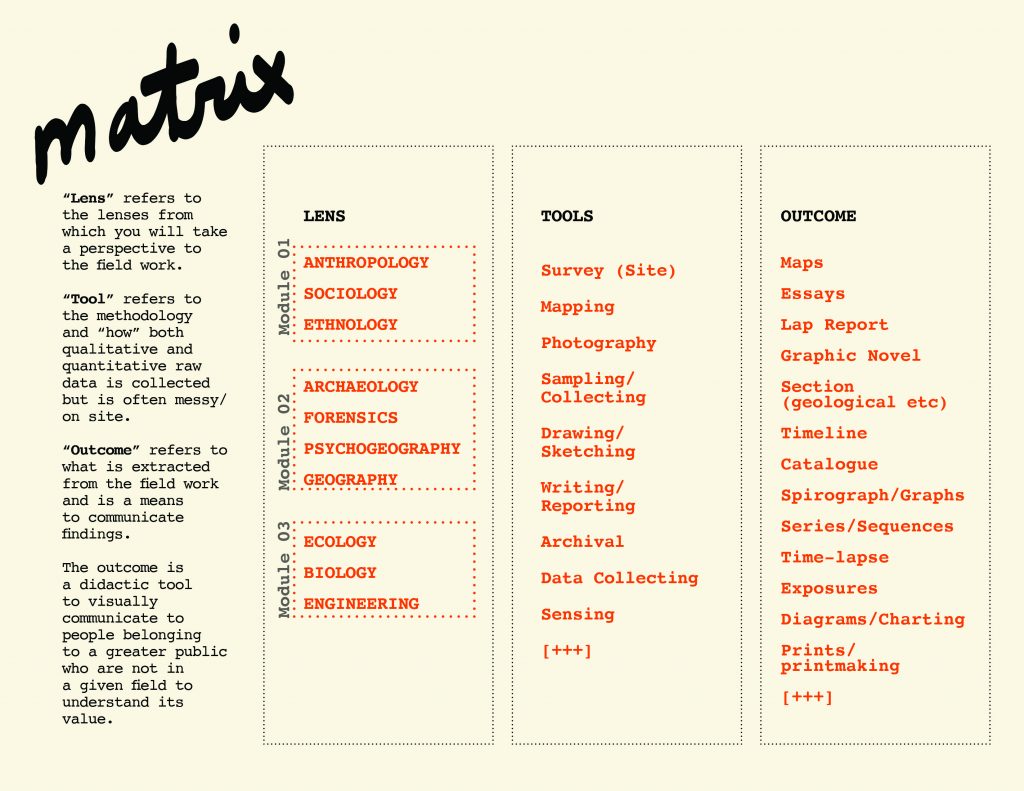
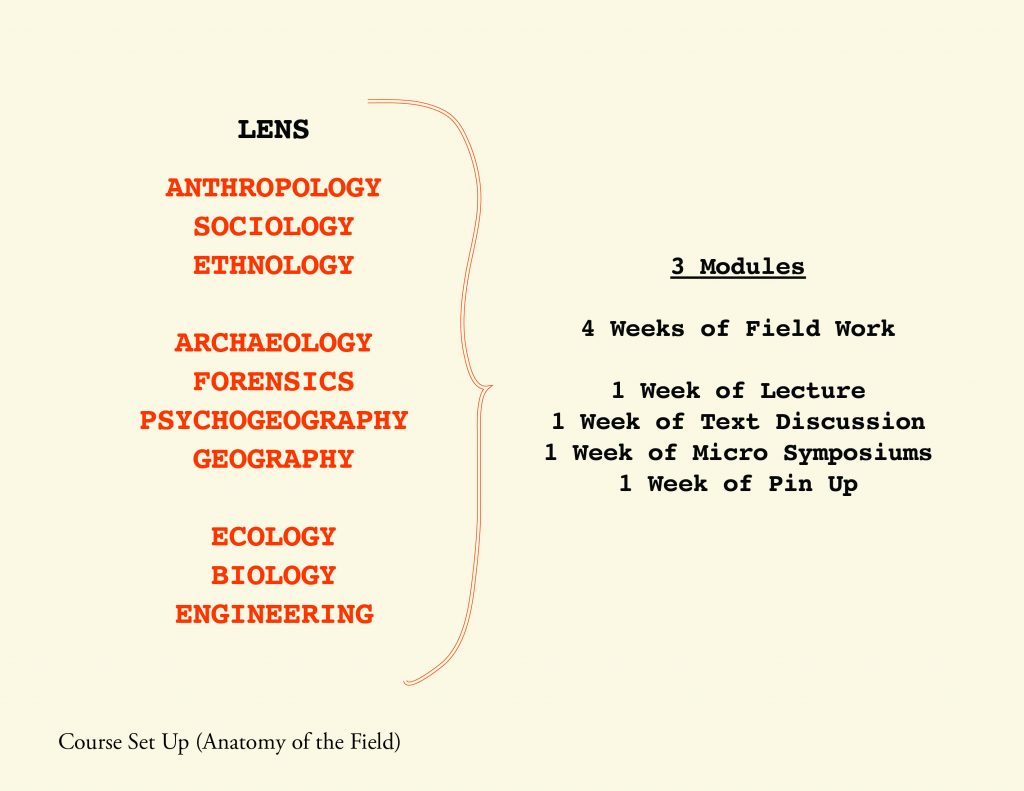
In her talk, Bernbaum described a new seminar she taught last semester called Anatomy of the Field, which attempted to challenge fieldwork practices within the architectural profession.
“Through the course, we discuss the role and ethics of field research as tied to place, geography, and culture,” she says. “As architects and designers, we occupy land, time, and space when we conduct our field research, which means we inherently leave an imprint, take up territory, and intrude into the ‘homes’ of others as uninvited guests, voyeurs, and trespassers.
“How do we hold ourselves responsible in the profession and in the way we engage with the field? “
The graduate-level course looks at fieldwork as an active role that engages emotion, instincts, storytelling and feeling. It seeks to establish careful and empathetic practices that do not assume space is open to everyone equally.
“By looking at the field through various fields — geography, psychogeography, psychology, anthropology, sociology, forensics, biology, ecology — students are asked to step outside their comfort zones to assess care in approach,” Bernbaum explains. “They are asked to reframe the conditions of the world through new tools of measure, but also through new lenses that come with new responsibilities and accountability.”
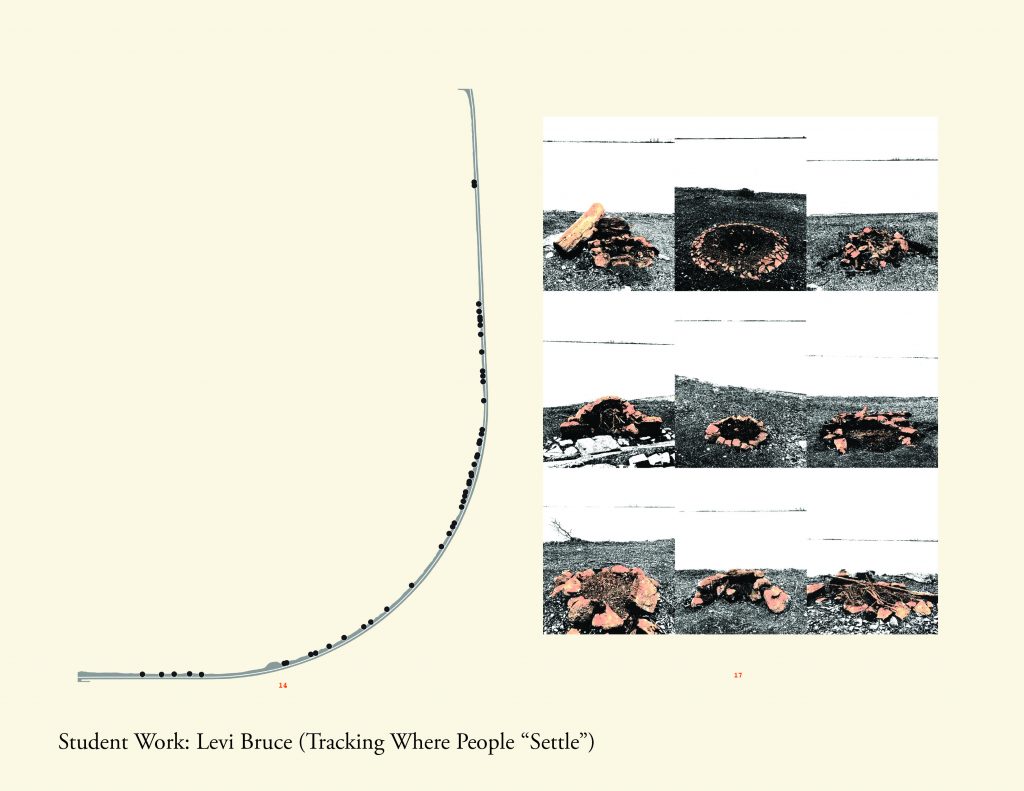
Student work by Levi Bruce
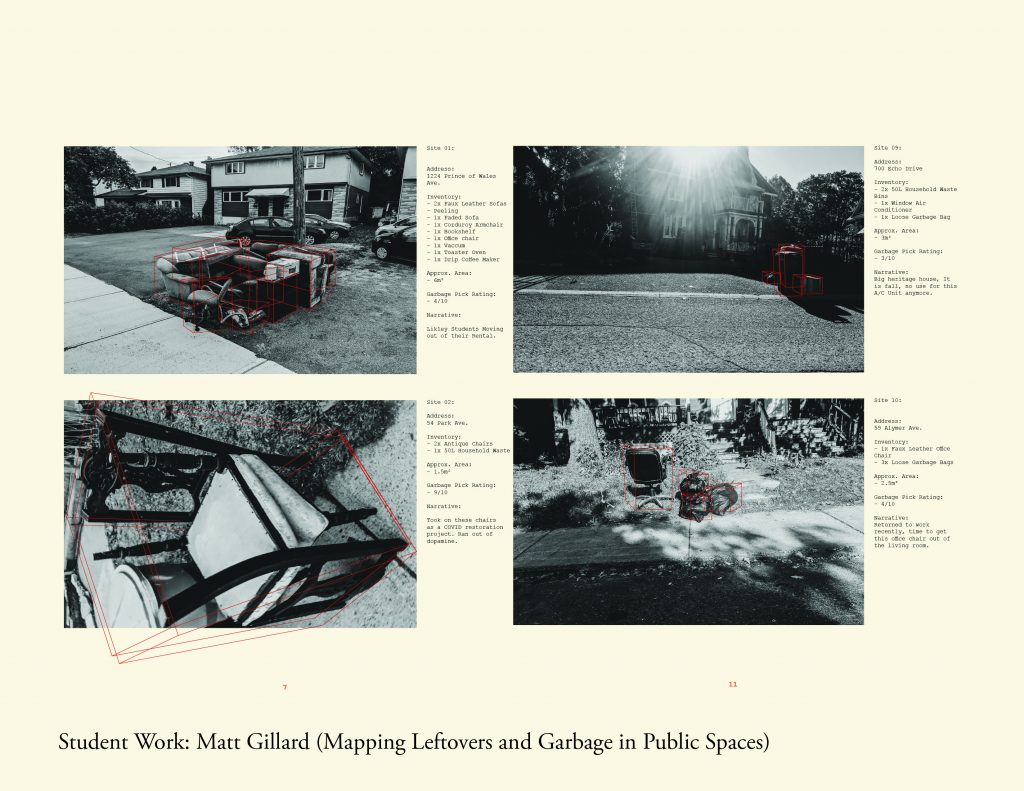
Student work by Matt Gillard
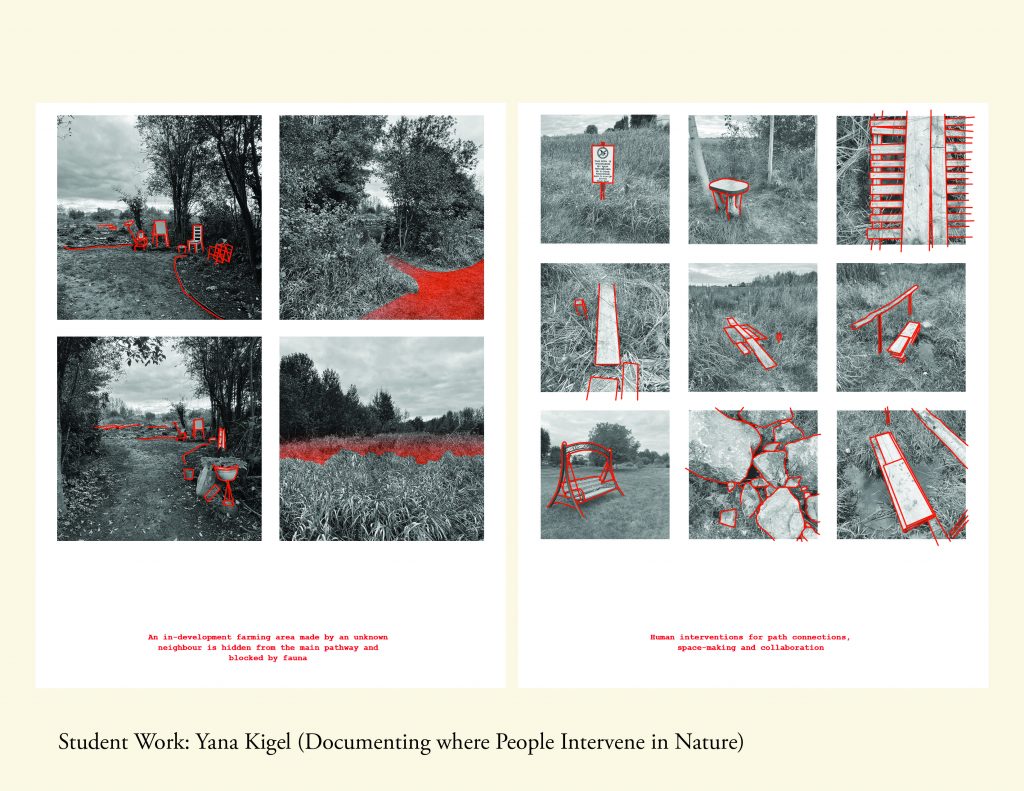
Student work by Yana Kigel
The course surveys many texts that connect with the various fields of practices explored in the seminar. It focuses specifically on questions surrounding our role and ability in practice from two key texts: Site Matters (Kahn, Burns, 2021) and A Manifesto for a Patchwork Ethnography (Günel, Varma, Watanabe, 2020).
“This course asks students to engage in a site of the everyday and give themselves over to its quality, culture, and space, giving back rather than taking anything away, mining the possibility of unheard stories, unseen patterns or missed relationships,” says Bernbaum.
Her February 3 talk gave an overview of the course, its outcomes and downfalls, and explored student fieldwork. She discussed reformatting how designers approach the field — while considering one’s consciousness of site work and its implications and the overwhelming amount of online data available.
Bernbaum also coordinated, as part of the course, a series of small symposiums of invited conversations that speak to ethics in architectural field research practices toward, what she calls “building a new manifesto for what the future of architectural field work can offer.”
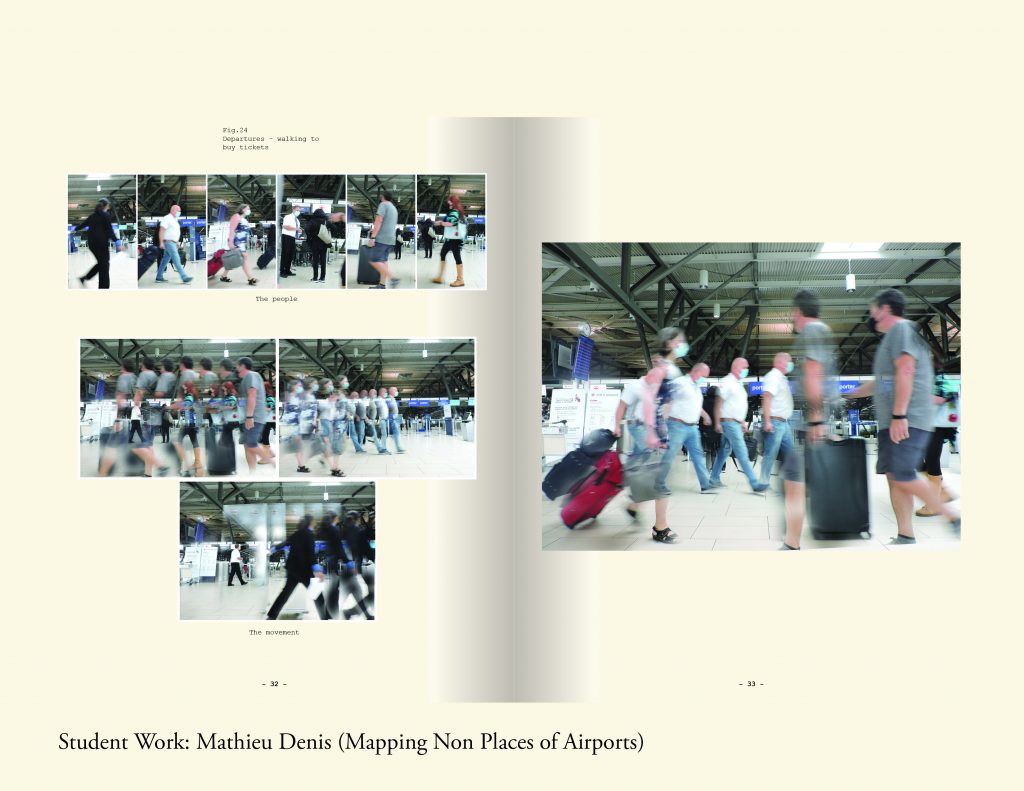
Student work by Mathieu Denis
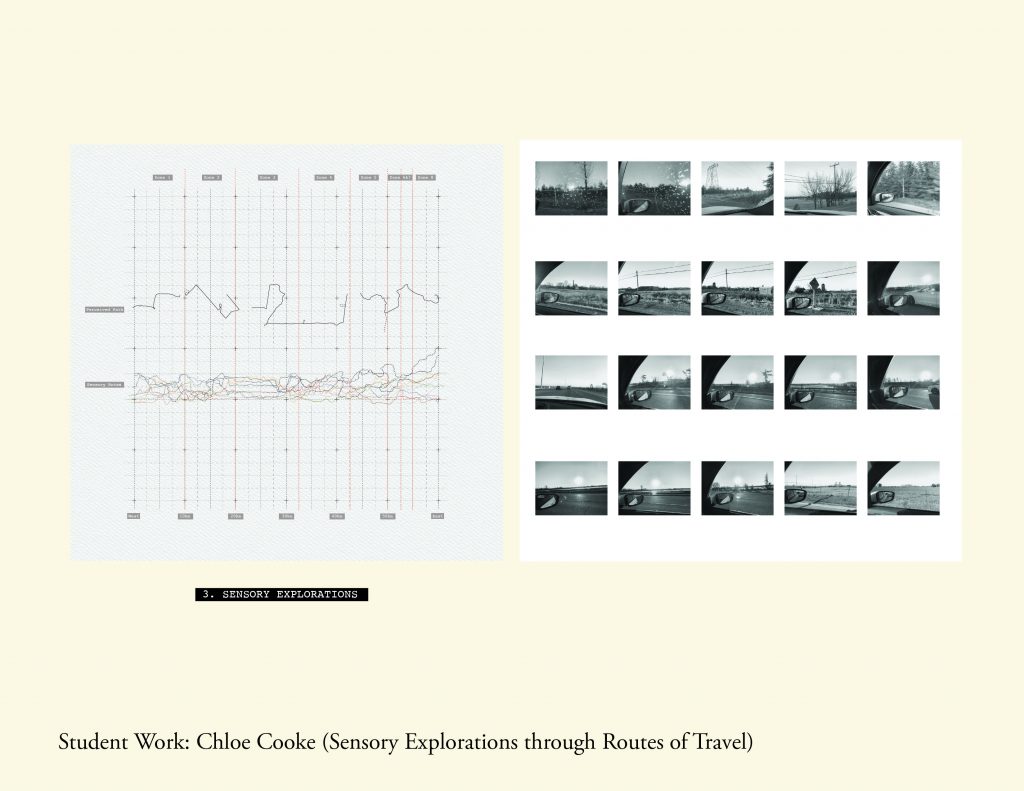
Student work by Chloe Cooke
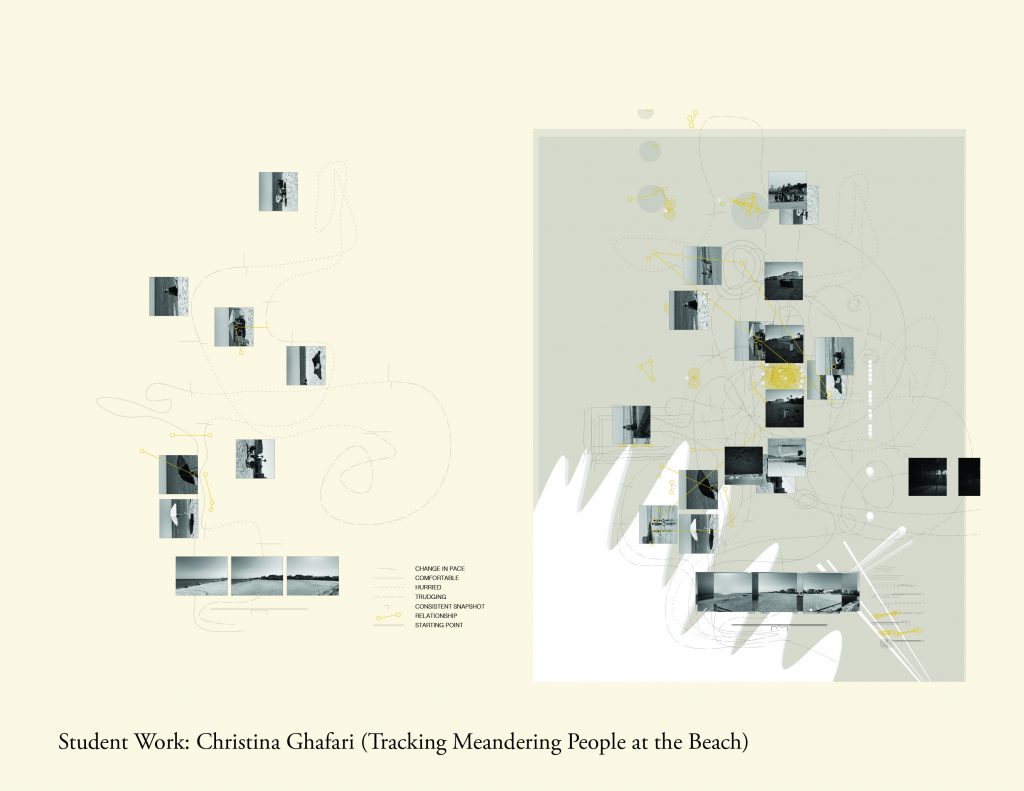
Student work by Christina Ghafari
The conference was organized by two scholars based in England: Zara Babakordi is a postgraduate researcher in the School of Geography, Politics and Sociology at Newcastle University. Matilda Fitzmaurice is a PhD student in the Department of Geography at Durham University.
“Fieldwork is a touchstone of geography and often stands in for ‘good’ and ‘rigorous’ research,” they write. “It is also intimately bound up with resource inequities and socially produced — but materially felt — inequalities.”
As such, they write, “it arguably plays a role in entrenching the unequal distribution of resources and prestige within and between universities across different geographies, with implications for researchers’ experiences.
“Given that the pandemic, inequitable vaccine rollout and climate crisis call into question the ethics of international travel, there has arguably never been a better time for geographers to rethink fieldwork, and who and what it is for.”
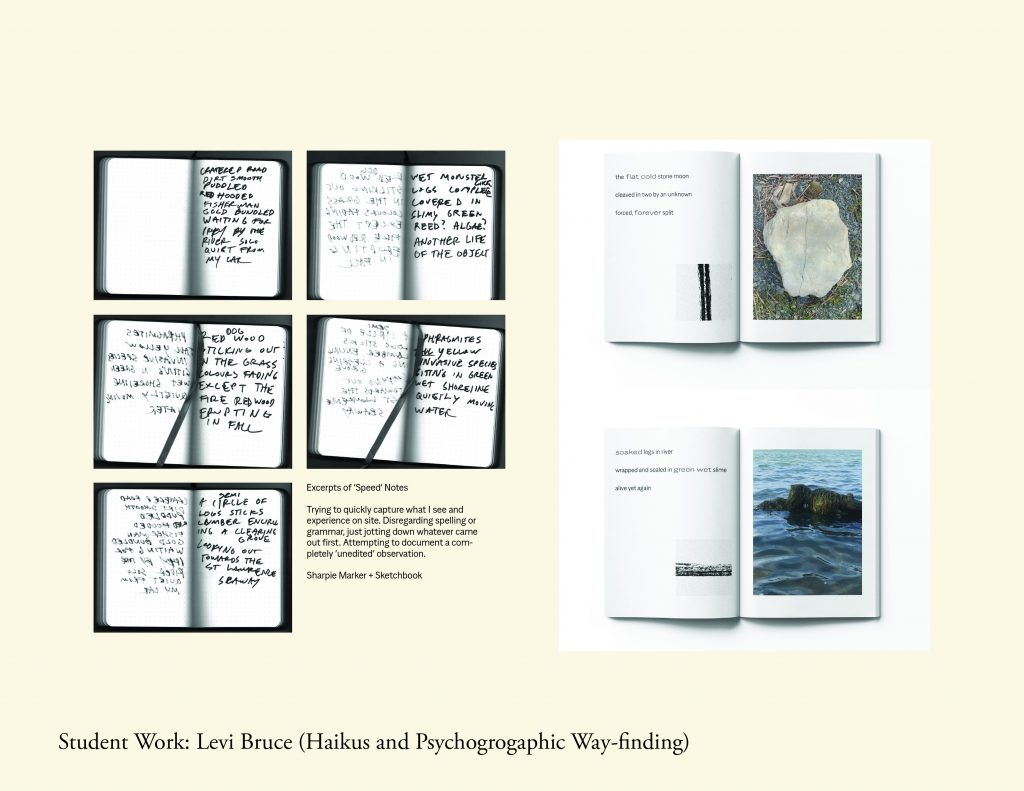
Student work by Levi Bruce
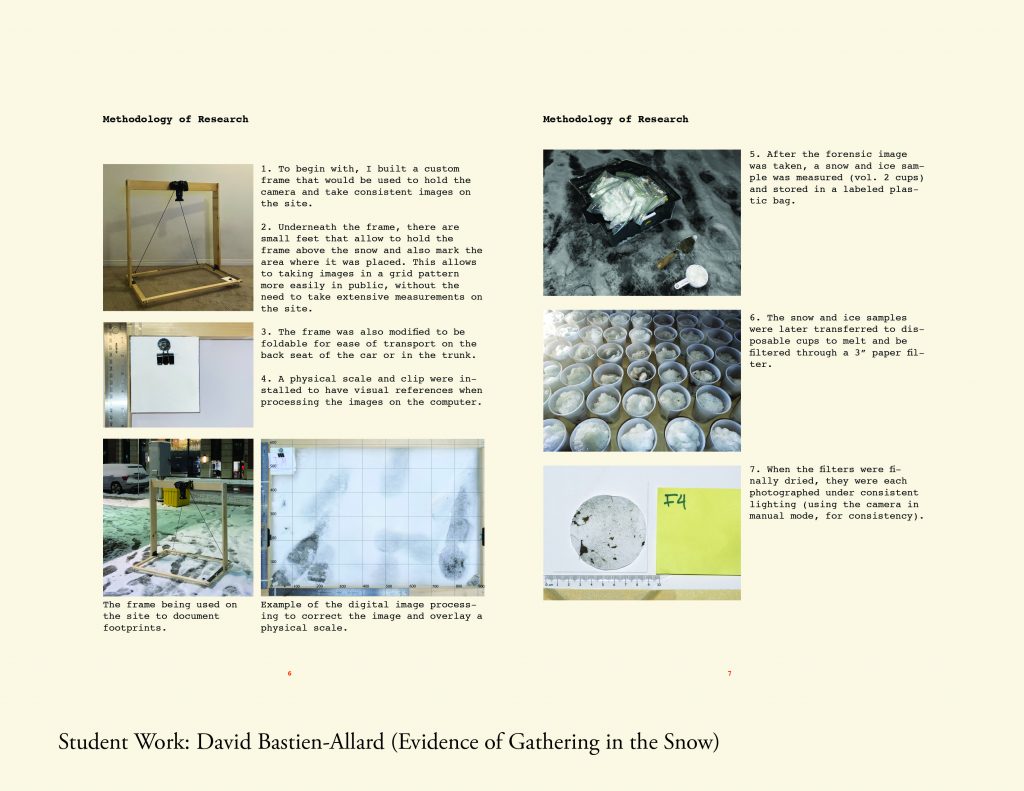
Student work by David Bastien Allard
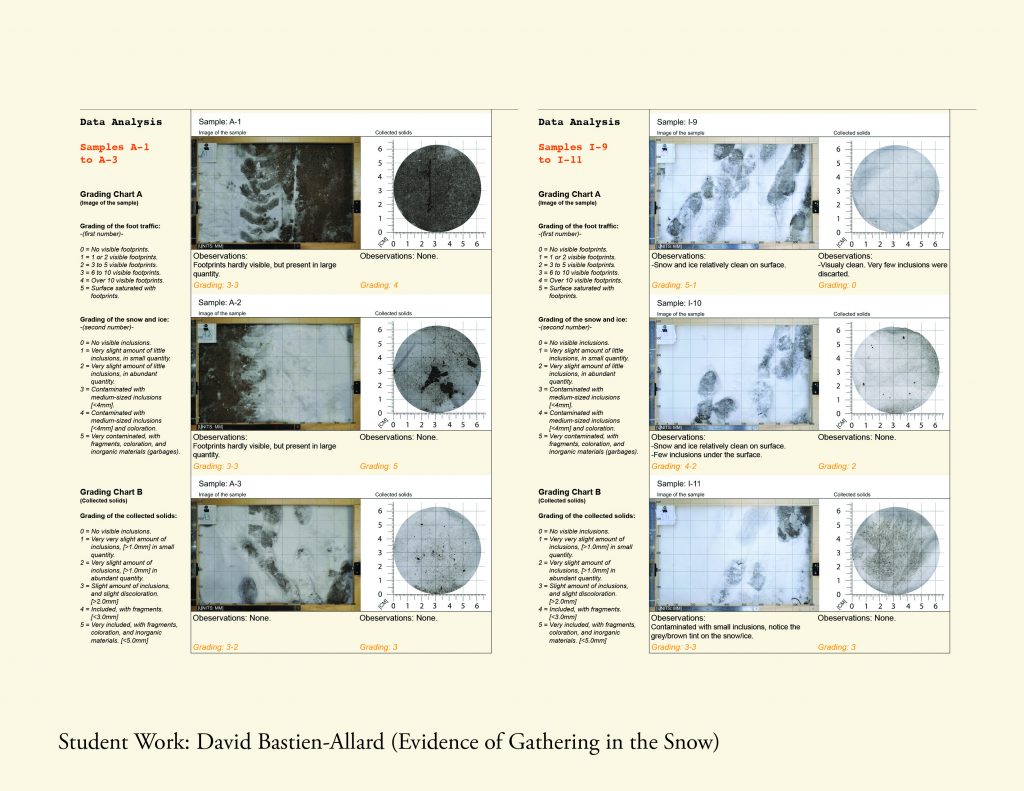
Student work by David Bastien Allard

About Piper Bernbaum
Piper Bernbaum is an assistant professor at the Azrieli School of Architecture & Urbanism at Carleton University. She is the recipient of the Canadian Prix de Rome for Emerging Practitioners, and the Canadian Governor General’s Academic Gold Medal for her work.
Bernbaum’s research is focused on the intersection of law and architecture, the considerations and constraints of social and spatial plurality, and the appropriation of space through design.
Especially interested in legal fictions and everyday architectures, Bernbaum’s work looks at community building, and the loopholes found in both inclusive and exclusive environments. Her work focuses on ethics of space, fieldwork practices, and engaging carefully within contextual studies in architectural research and practice.
In recent years, Bernbaum has worked on international exhibitions on law, evidence, and architecture – being on teams with work exhibited at the Venice Biennale in 2016, the Royal Ontario Museum in Toronto in 2017, and the Smithsonian Hirshhorn Museum in Washington in 2019. Her methods of research include explorations into fieldwork, photography, spatial narratives, cartography, casting, and drawing as a critical practice.